
Gudrun Ensslin was a German far-left terrorist and founder of the West German far-left militant group Red Army Faction.

Paula Anna Maria Wessely was an Austrian theatre and film actress. Die Wessely, as she was affectionately called by her admirers and fans, was Austria's foremost popular postwar actress.

Christiane Hörbiger was an Austrian stage, film, and television actress. Her first major film role was Mary Vetsera in Kronprinz Rudolfs letzte Liebe in 1955. She appeared on the stage of the Burgtheater as Recha in Lessing's Nathan der Weise in 1959, became a member of Theater Heidelberg and later Schauspielhaus Zürich. From 1969 to 1972, she portrayed Die Buhlschaft in Hofmannsthal's Jedermann at the Salzburg Festival.

Bernd Eichinger was a German film producer, screenwriter, and director.

Alexandra Maria Lara is a Romanian-German actress who has appeared in Downfall (2004), Control (2007), Youth Without Youth (2007), The Reader (2008), Rush (2013), and Geostorm (2017).
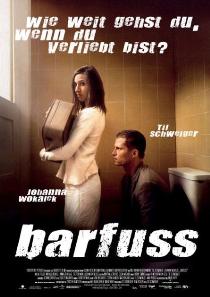
Barefoot is a 2005 romantic comedy film by German actor and director Til Schweiger. It tells the story of Nick (Schweiger), a hedonistic bachelor, who helps and eventually falls in love with Leila, an escaped psychiatric patient portrayed by Johanna Wokalek. Schweiger also co-wrote the screenplay, which is based on American screenwriter Stephen Zotnowski's original screenplay and story "Barefoot".

Bibiana Beglau is a German actress.

Veronica Maria Cäcilia Ferres is a German actress. Her 2007 portrayal of Sara Bender in Die Frau vom Checkpoint Charlie, based on the true story of Jutta Fleck, earned her the award for Best Actress at the Deutscher Fernsehpreis.

Martina Gedeck is a German actress. She achieved international recognition due to her roles in films such as Mostly Martha (2001), The Lives of Others (2006), and The Baader Meinhof Complex (2008). She has won several awards, including two Deutscher Filmpreis, in 1997 for Supporting Actress in Life is All You Get, and in 2002 for Actress in Mostly Martha.

Jan Josef Liefers, is a German actor, producer, director and musician.
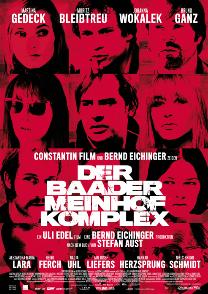
The Baader Meinhof Complex is a 2008 German drama film directed by Uli Edel. Written and produced by Bernd Eichinger, it stars Moritz Bleibtreu, Martina Gedeck, and Johanna Wokalek. The film is based on the 1985 German best selling non-fiction book of the same name by Stefan Aust. It retells the story of the early years of the West German far-left terrorist organisation the Rote Armee Fraktion from 1967 to 1977.
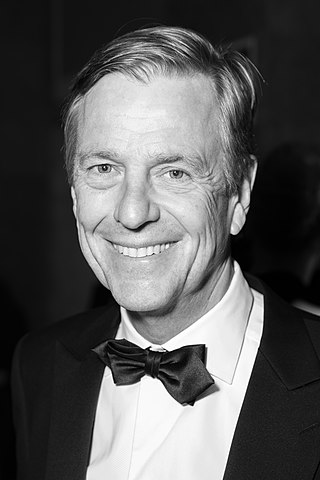
Claus-Detlev Walter Kleber is a German journalist and former lawyer. He anchored heute-journal, an evening news program on ZDF, one of Germany's two major public TV stations. He is also known for his expertise in United States politics and German-American relations, as evidenced by his 2005 bestseller Amerikas Kreuzzüge.
Hierankl is a German award-winning family drama which premiered on 1 July 2003 at the Munich Film Festival. The modern Heimatfilm, named after a district in Surberg, Germany, is the film debut of writer and director Hans Steinbichler.

Josef "Sepp" Bierbichler is a German actor.

Nadja Uhl is a German actress.
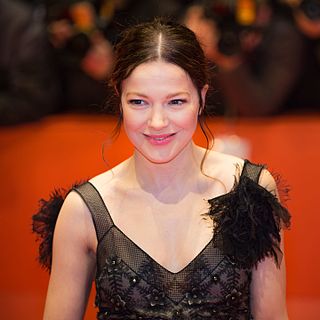
Hannah Herzsprung is a German actress.
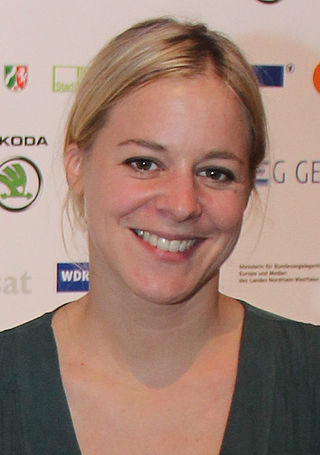
Bernadette Heerwagen is a German actress. She began acting at the age of 16, and has since co-starred in the 1999 production Der Schandfleck, for which she was awarded the Bayerischer Fernsehpreis Sonderpreis in 2000.

Elke Heidenreich is a German author, TV presenter, literary critic and journalist. She has written audio plays, a magazine column, scripts for television plays and books. Heidenreich is known as the Kabarettist who created a character, Else Stratmann. She is a literary critic in the television Literaturclub of the Schweizer Fernsehen.

Volker Bruch is a German television and film actor. He is best known internationally for his leading roles as Wilhelm Winter in the television drama Generation War (2013) and as Inspector Gereon Rath in the neo-noir series Babylon Berlin (2017–present); for the latter, he was awarded the 2018 Grimme-Preis, Germany's most prestigious television award. In film, he was part of the ensemble cast of two films nominated for Academy Awards in 2009: The Reader and The Baader Meinhof Complex ; more recently, he appeared in the thriller The Girl in the Spider's Web (2018) and Race for Glory: Audi vs. Lancia (2024).
Hans Sebastian Steinbichler is a German film director and screenwriter.



















